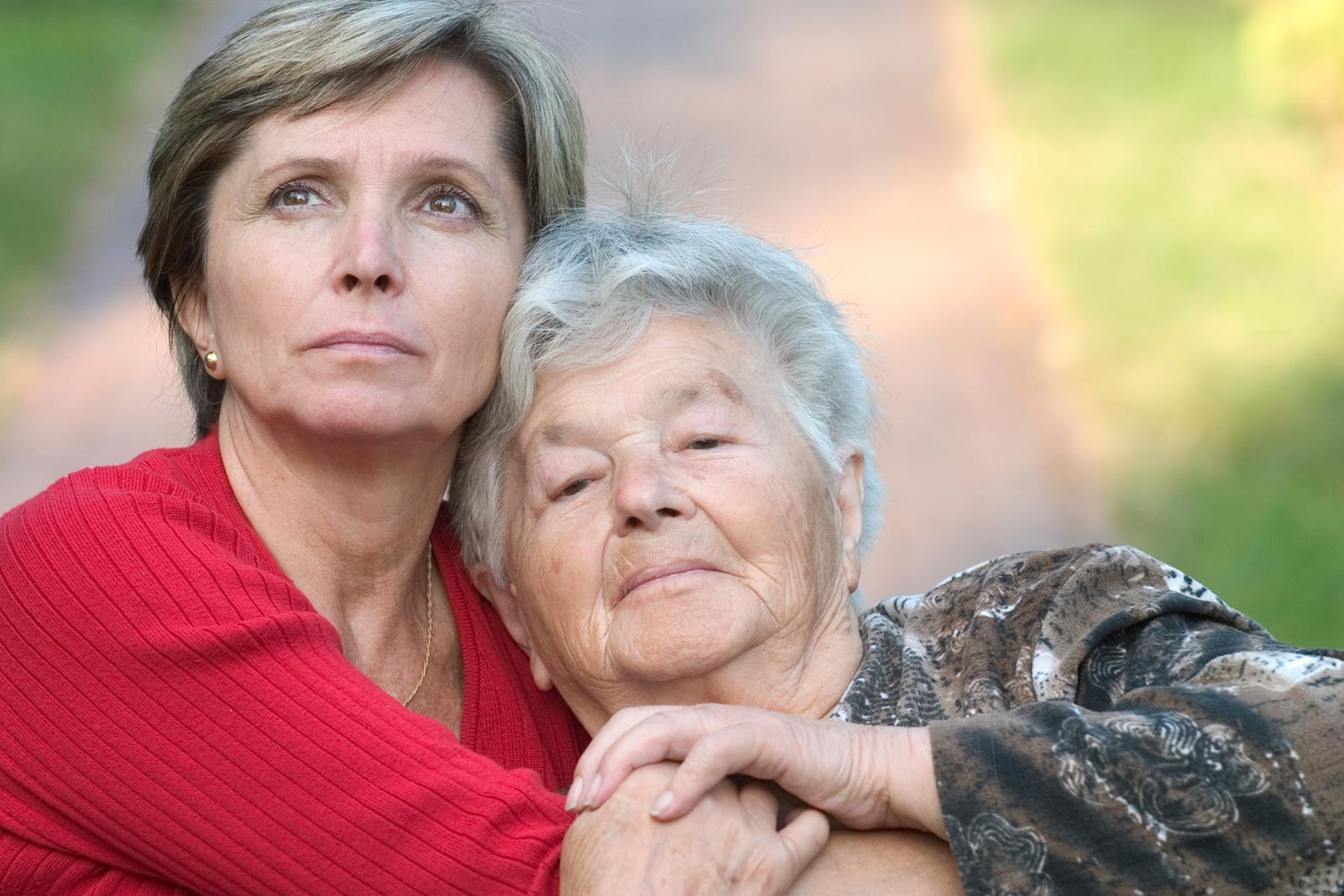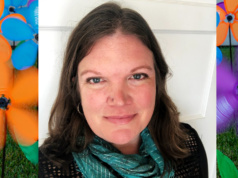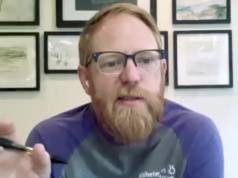Welcome back to everyone to Answers for Elders Radio Network with the one and only Kelley Smith from CarePartners Senior Living. CarePartners, as most of our listeners know, has — what is it now, Kelley, about 18 communities?
– We just went live this week in Arizona, and Arizona markets have taken off, we’re pretty excited to be able to help people there financially and physically. We think that’s very important. So we’re happy to be able to be in those markets to offer that one.
– And what I love about CarePartners is you can move in and live out the rest of your days and not worry about if you are going to run out of money. And I think that’s the thing that’s really amazing because the way your program works is that you work with those that need financial help to Medicaid and things like that. So after they sell their house that they outlive their money. It’s okay, they don’t have to move. And I think that’s really part of the ethics and amazing principles that CarePartners does and encourages with their residents.
– Thank you.
– Yes, we love working with you on that. So Kelley, it’s Alzheimer’s Month. You guys have been at the forefront of the Alzheimer’s Walk. I’ve seen pictures of you all over the place.
_ We’ve gone a lot. We support the walks every year. Any families that are are dealing with any form of dementia, it doesn’t have to just be Alzheimer’s, to reach out to the Alzheimer’s Association. The reason they’re doing these walks and fundraisers just to be able to offer free support to families who are having a tough time. And so please, families, if you’re listening right now, look them up online, get hold of your local chapter. They have got resources beyond anything you can imagine, and there’s so helpful and wonderful people.
– And a 24-hour support line where you can call. Especially if you’re taking care of a loved one at home, maybe it’s your spouse, and all of a sudden your wife wakes up in the middle of the night and says, I don’t know who you are and what are you doing in my bed? I’ve heard stories like that, that are just so tragic and so hard, and are especially hard on the spouse that’s trying to take care of that loved one. For us to be able to provide those resources and care options like CarePartners, is important. So Kelley, we’ve talked about the different forms of dementia. Can you give us a rundown of the different types?
– If you contact the Alzheimer’s Association, they’ll tell you there are over a hundred different types of dementia. It’s like saying cancer, it’s an umbrella that all the other things come. What type of cancer? Well, what type of dementia? Alzheimer’s is the one you see the most, and you also see vascular dementia that can be brought on by a number of different things. Heart disease, COPD. There’s a number of different things, and it’s usually caused because of a trauma, a lack of oxygen. There’s usually something that’s happened to the brain and that causes funnel lobe. You also see Lewy body dementia, which unfortunately is very common with many Parkinson’s residents. You don’t have to have Parkinson’s to get Lewy body, but that also forms a very different behavior, a very different outlook. Also, a 45 year old person who gets Alzheimer’s will probably be deceased by 50, and an 89 year old woman’s with Alzheimer’s will probably live out their life without any decline. So Alzheimer’s affects people differently depending on the age that they get it.
– It isn’t it ironic that it escalates so much more quickly in younger people?
Yeah, it’s very depressing to see. They call it the long goodbye for a reason, and that’s because, as this person, you know, they’re slipping away. It’s an emotional thing for families as well, because it’s not like you just got up and mom died. Mom is slowly dying and losing her memories of you.
– I know too that like, for example, my mom had vascular dementia that was brought on by COPD. She was a smoker for years and even though she quit 20 years before she was diagnosed with COPD, the damage had already been done. S when when that escalated to vascular dementia, she would get details mixed up, She would not think things through. She didn’t always comprehend things as well. But no matter how advanced her dementia got, that dynamic dynamic between her and me, she still knew how to push push my buttons. She still was my mother. She saw herself as the authority, the parent. We as family members think we’re doing right by a loved one because we have them at home, but we really are clueless when it comes to communication. We don’t know how to stimulate their brains — we don’t have those skill sets. So if somebody has someone at home, what are the first steps they should take? What should they expect in a home care situation?
– You need to take a look at the situation. If your loved one is still safe at home — they’re not wandering, they’re not at risk, they’re still in the first stages — can you bring in some home care to kind of help out with a few things, maybe some housekeeping, whatever it takes to keep them at home? As long as they’re safe at home, it’s never a bad idea. When we get to the dementia part, where we have science experiments in the refrigerator and medication not being taken on time, then it’s time to ask: Is it really realistic for us to keep mom and dad at home? What’s it doing to my health, what’s it doing to our situation? And is it working? Is mom happy? And if the truth is it’s not working, she’s not happy, then you have to start looking at some outside options. And there’s adult family homes, there’s assisted living, memory care-type communities, there are options out there. But you have to figure out what’s going to be best for them with their personality and their abilities, and their social skill at the time that the placement has become necessary.
– I think there’s a misnomer that if you seek out a care option, it means that they have to go directly in the memory care, and that is not the case. There are a lot of different ways in which care can be even given in the home to start. And I know you work with some amazing home care agencies just in that bridge process.
– Anytime anybody needs a referral from our communities, we’ve got preferred providers for a reason. That’s because they’ve given us outstanding service. Families have been happy, residents have been happy, so of course we’re going to continue to refer those good folks. So, if a family comes to us, and we’re sitting there talking to them, the one thing I’ll tell you is a really good person in this position is not going to help you place your loved one if they’re not ready. And a nursing assessment, one of the reasons that’s so important is not just to kind of see what kind of care needs and write out care plans. Of course that’s part of it, it’s a very important part, but they also need to kind of get a feel for where are they socially, because they could have some physical decline due to dementia, but maybe there’s some other things that we don’t want to take away from them yet. There are people living at memory care communities who are what we call pleasantly confused. They’re not ready for memory care yet. They don’t need to be behind locked doors yet. So assisted living communities can ease people into that environment, help them navigate the environment, start to make big friends and get comfortable with caregivers. And then when the time comes when memory care is needed, most of those places also have that auction available.
– What I love about CarePartners is you do such a good job of educating. You don’t even have to be a resident for somebody to call and ask some questions. You guys are so helpful to the community around you. And I think that just shows the mission and the ethics of your organization.
– Thank you.
– And it’s why you do this podcast, because there is a very definite need out there for families that are struggling. My heart goes out to those that are taking care of a loved one that has a form of Alzheimer’s or dementia.
– Think about how many parents right now we’re taking care of younger kids with traumatic brain injuries that have the main symptoms of dementia. I mean, when you love somebody, you take care of them. You’re including them in that care so that what you are doing for them is also honoring what their wishes are.
– Absolutely, absolutely, And so in the next segment, Kelley, we’ll talk about the care options for those with Alzheimer’s and dementia.









